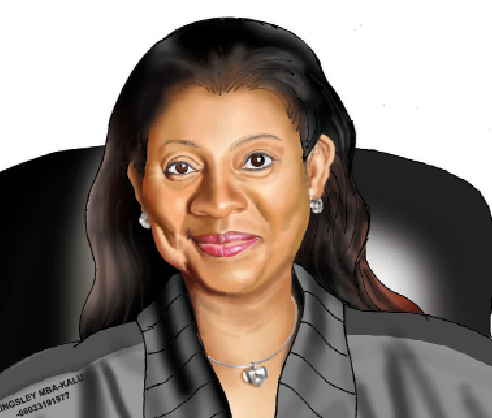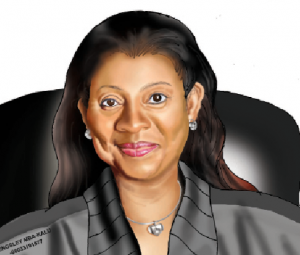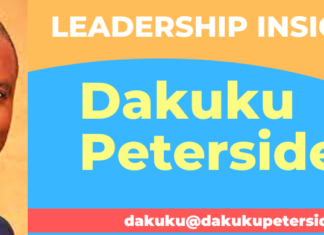The recent appointment of Nigeria’s Arunma Oteh as the new Vice President (Treasurer) of World Bank is a confirmation that Africa’s most populous nation brims with high quality human resources, writes Correspondent, SAM NWOKORO.
In this part of the world, the role of women in national development is seldom appreciated. In Africa, it is tantamount to record-setting to have a woman advance in career, much more in an area predominantly stereotyped for men. Thus the recent announcement that Nigerian-born former Director General of Securities and Exchange Commission (SEC), Arunma Oteh, has been appointed the Vice President of the World Bank did not take many who know the stuff the woman is made of by surprise.
The essence
To a large extent, the pretty boardroom amazon has come to symbolise the resilience of the African woman in a world where the imperialist casting of anything from Africa, much more human resources, is below average. But given the intricate socio-political and developmental challenges which the global village is contending with today, the recognition of the capabilities and unblemished public service accomplishments of Oteh is a confirmation that the global community and its institutions have come to change their previous perception about Africa.
But was the reappraisal by merit or favour? No, it couldn’t have been the latter. World Bank President, Jim Yong Kim, said over the appointment: “Arunma has deep knowledge of capital markets and tremendous experience as the treasurer of our partner banks. We are very fortunate to be able to recruit an individual of Arunma’s obvious caliber.”
It is not mere sentiment for Oteh, who has tremendous endorsement in Nigeria and abroad, both from the public and private sector operators, as well as ordinary folks.
One of Nigeria’s foremost financial market consultants, Bismark Rewane, the chairman of Financial Derivatives, said: “Arunma Oteh goes to the World Bank with a hands-on experience that is equal to none among her peers in Nigeria and Africa. She is instrumental in several reforms in capital market operations in the country. As Director General of the Securities and Exchange Commission, she maintained market integrity appreciably. She stepped on toes and was able to clear herself when probes of market operations took her to the House of Representatives.
“Oteh, I am proud to say, proves once more that Africa is not lacking global leaders. Only old politics inherited from colonial hang over (is its problem). Her going to the World Bank as Vice President is an endorsement of the African ability to deliver. I have no doubt that she will help the developing economies of which Nigeria is one.”
Another citizen, Boniface Chizea, says: “Oteh obviously merits the appointment. Under her, the capital market identified series of insider abuses which ordinarily people did not know were going on. And she tried her best to remedy most of them. Power interest in Nigeria was at play, but she was able to hold her brief and defended it admirably.”
There is widespread optimism that Oteh’s knowledge of the nature and structure of developing economies in the Southern Hemisphere would help her a great deal in dealing with the running of the bank.
Tony Okonna, an investment banker, sees her appointment from a somewhat divine perspective.
“Her recent appointment into the World Bank systems bodes well for Nigeria at this point in time. Nigeria’s economy needs much of foreign capital and grants, and I believe the Nigerian government should not shy away from approaching their own for grants to fast-track development.
“When Obiageli Ezekwesili was in similar position as World Bank Vice President for Africa, she helped many poor countries in Africa and some state governments in the development policies by way of grants and loans to very generous repayment terms. It is not a matter of sentiments, it is due for Nigeria.
“Most of the economies we call Asian Tigers and MINT developed with borrowed capital. We are lucky that in recent times, international organisations have begun to identify with Nigeria’s human resources potentials. So we should make good use of such opportunities. I believe she understands the fundamentals of Nigeria’s economy, so she should be able to advance grants to our economy. After all, a lot of capital has taken flight out of the economy, plus the plunge in our oil price which has fuelled the economies of other nations through sundry out-of-process methods like illegal oil bunkering, smuggling and outright theft. So her presence at the world Bank should serve as a platform for us to repatriate those capital back into the economy.”
Up to date
Oteh comes to World Bank system an up-to-date woman in terms of cerebral presence, public service accomplishment and expertise in the dynamics of the developmental challenges of the needy countries of the world.
An alumna of the University of Nigeria Nsukka (UNN) and Harvard University (MBA), Oteh has had a wide range of experiences in both public and private sector operations. She worked at Cerntrepoint Investment Limited, reputed in business consulting, teaching and research. She was also in the African Development Bank (AfDB) as Senior Investment Officer/Capital Market Officer between 1993 and 1997, and as Division Manager Investment and Trading Room of the bank between 1997 and 2001. She became Group Treasurer of the AfDB in 2001.
In June 2010, she gave what passed as one of the most incisive appraisals of the capital market operation in Nigeria, itemising the sort of abuses that had hindered commensurate capitalisation of the market and how share manipulations had created a lot of unworthy millionaires in Nigeria at the detriment of genuine investors.
It was on the strength of those forthright disclosures during the interview that attracted her to the Yar’Adua/Jonathan government which brought her into government. In 2010, she removed the management of the Nigerian Stock Exchange (NSE) after discovering series of unwholesome activities. That action immediately resuscitated waning interest in firms floating at the Exchange.
In 2012, following some unwholesome deals at the NSE by some highly-placed individuals in Nigeria considered as ‘untouchables’, a probe was instituted by the House of Representatives. At the end, she emerged victorious. She was recalled in July 18, 2012 when the probe cleared her. Anyhow it is viewed, Oteh is a vindicated woman.
















